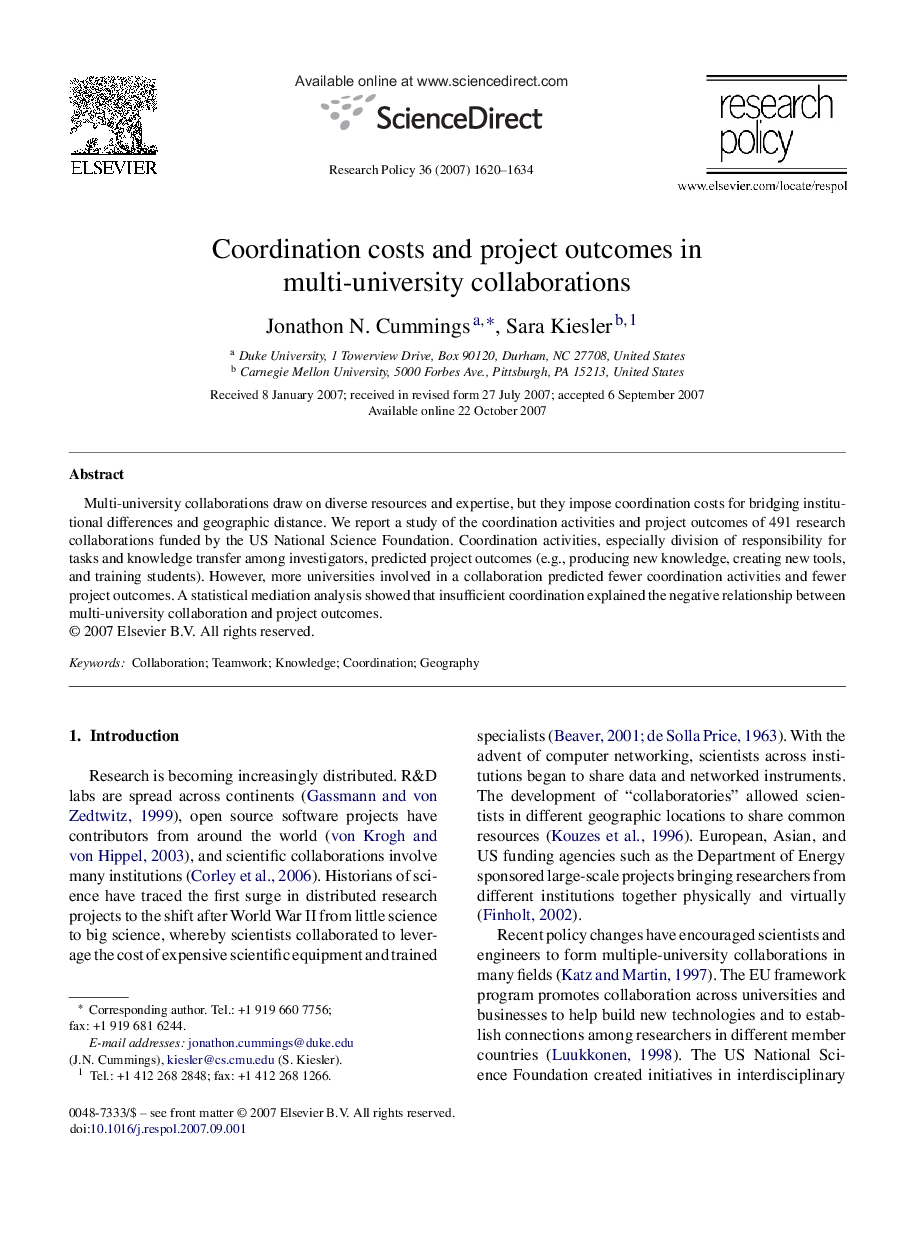| Article ID | Journal | Published Year | Pages | File Type |
|---|---|---|---|---|
| 985228 | Research Policy | 2007 | 15 Pages |
Multi-university collaborations draw on diverse resources and expertise, but they impose coordination costs for bridging institutional differences and geographic distance. We report a study of the coordination activities and project outcomes of 491 research collaborations funded by the US National Science Foundation. Coordination activities, especially division of responsibility for tasks and knowledge transfer among investigators, predicted project outcomes (e.g., producing new knowledge, creating new tools, and training students). However, more universities involved in a collaboration predicted fewer coordination activities and fewer project outcomes. A statistical mediation analysis showed that insufficient coordination explained the negative relationship between multi-university collaboration and project outcomes.
